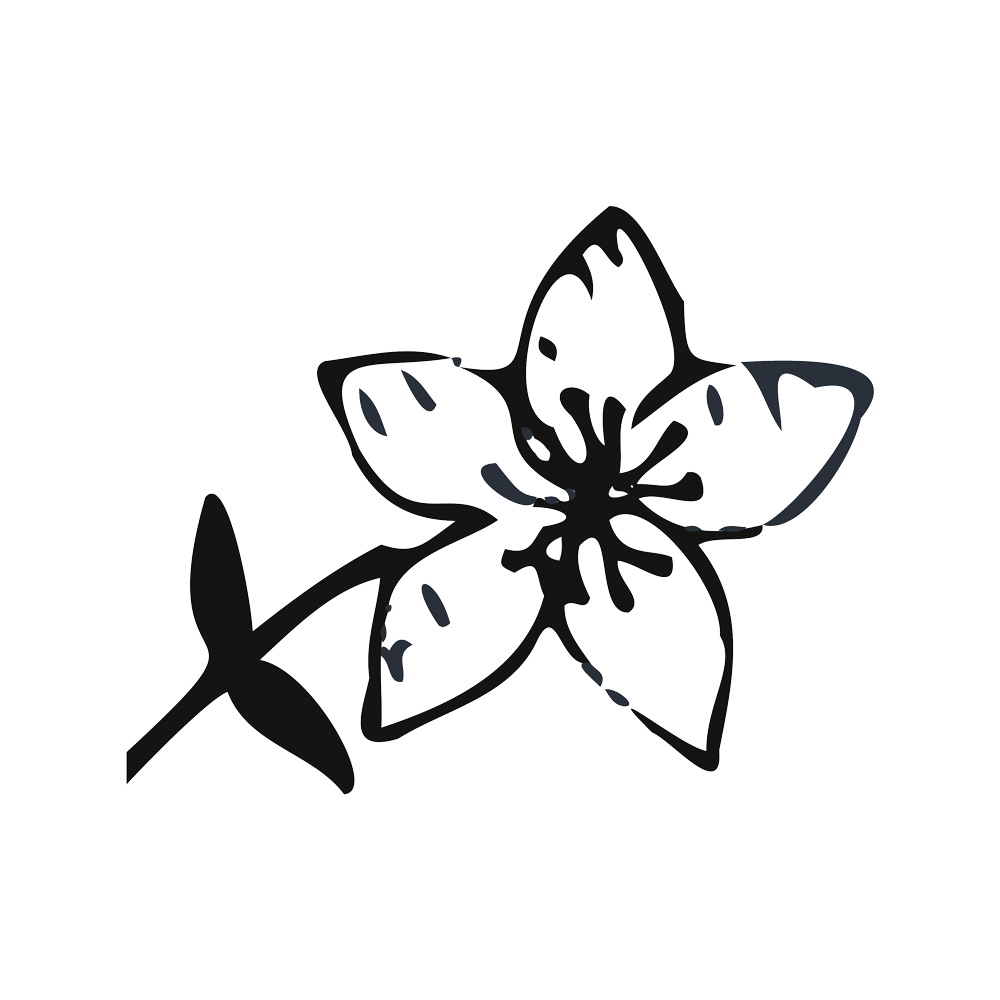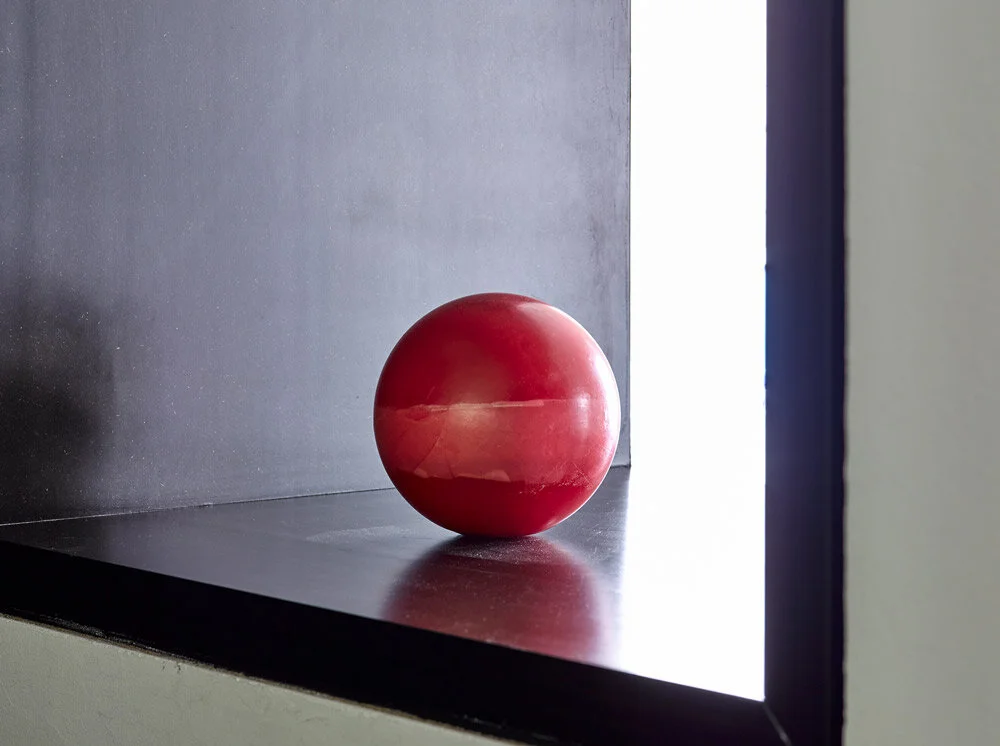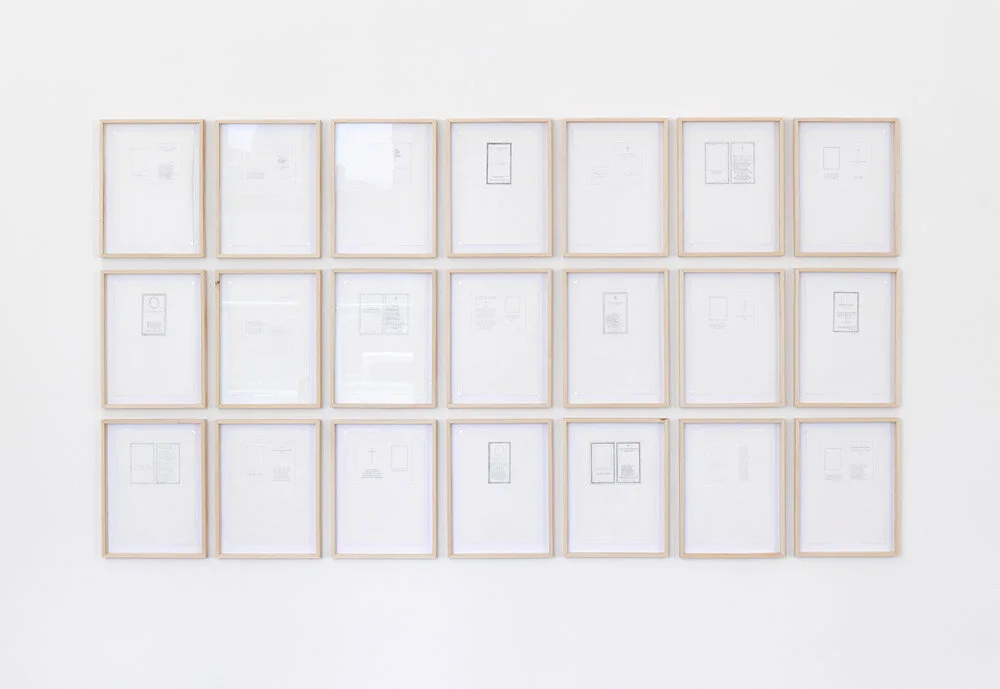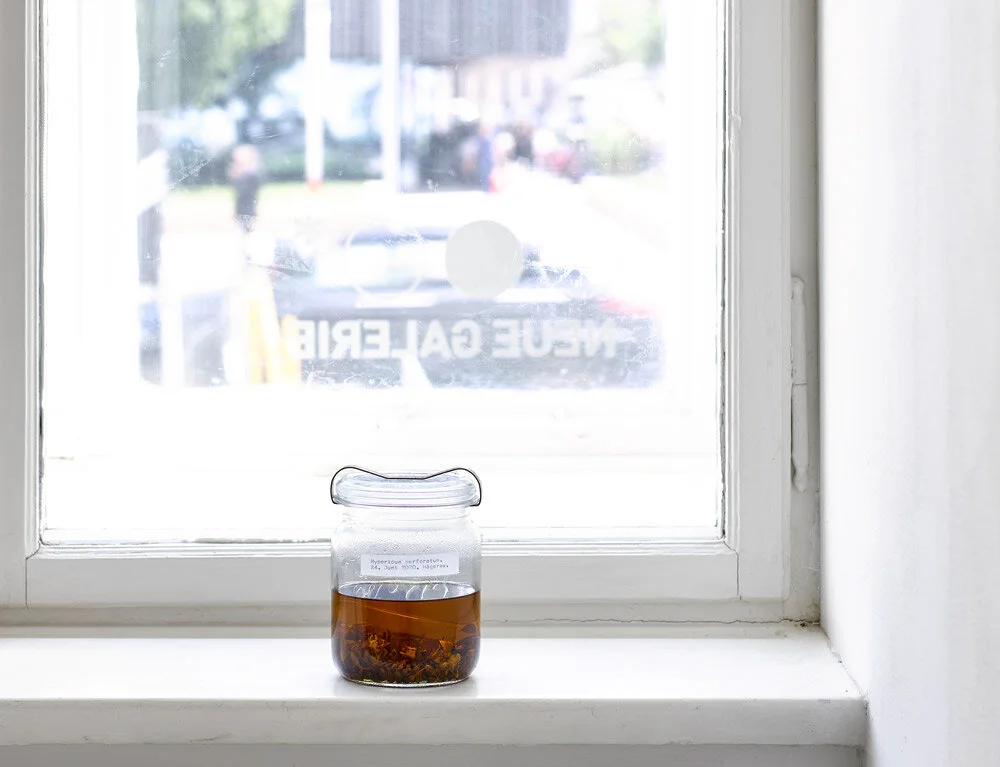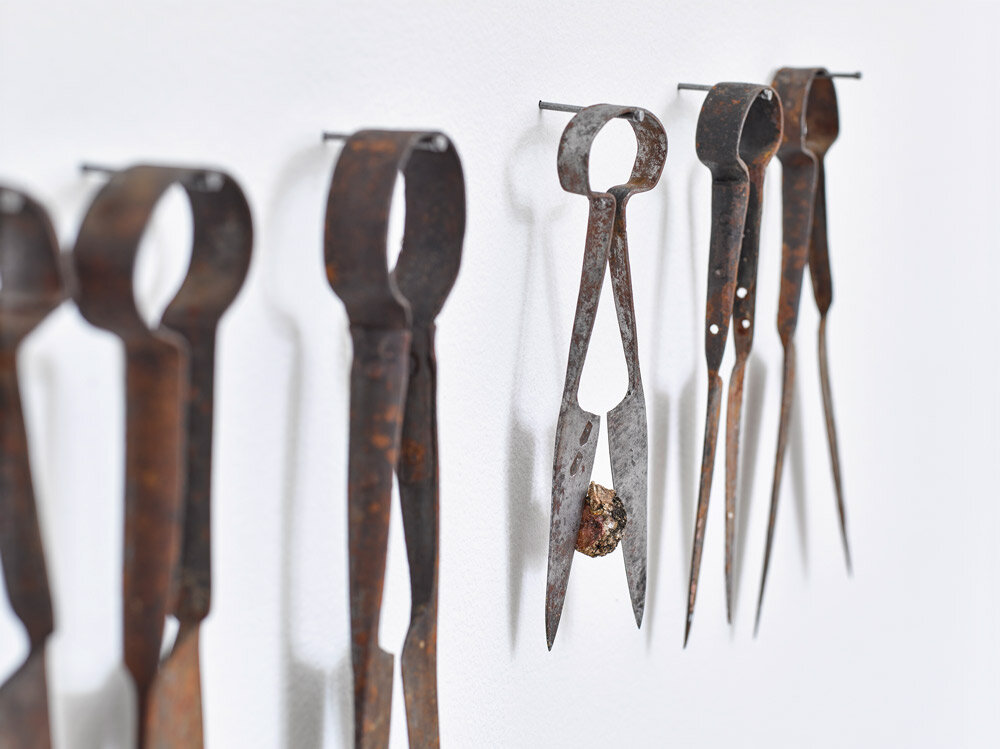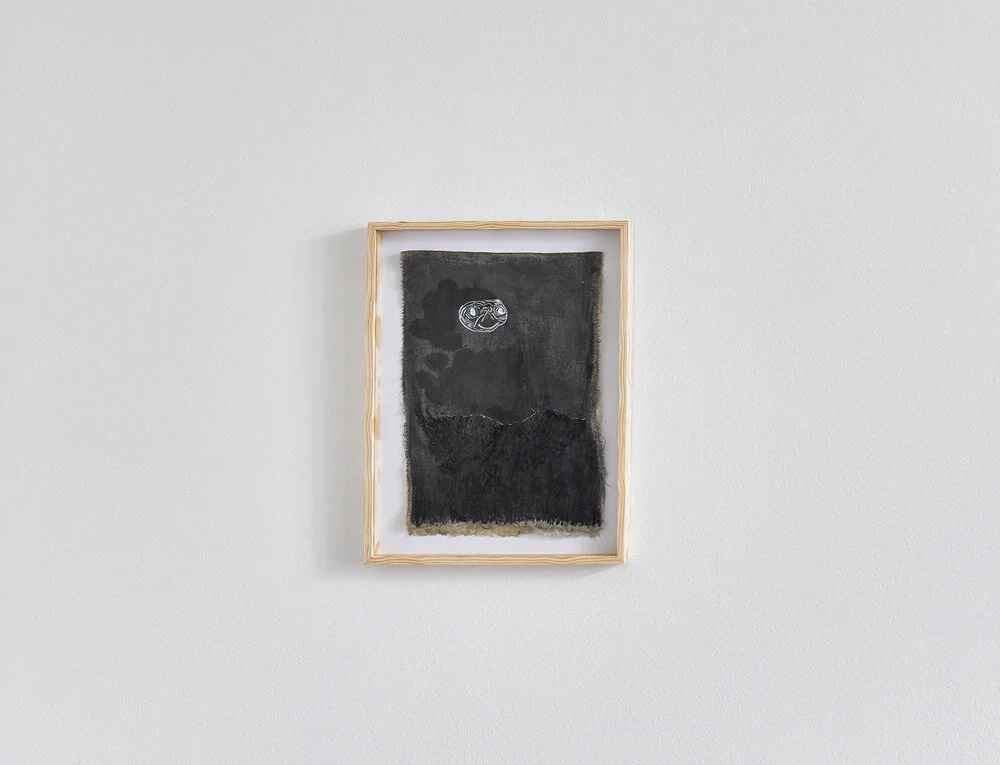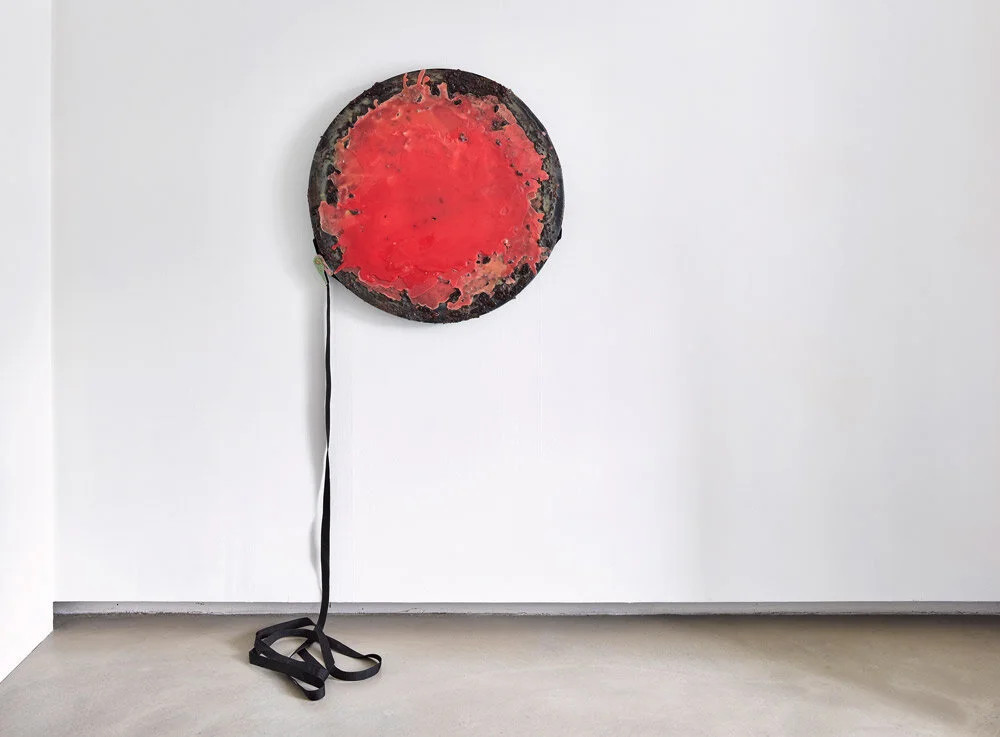"We belong to the light. - We belong together." 2020, candle wax, Ø 20 cm
"Prozession verwandelt zum Krieg. Umgekehrt. (Procession transforms into war. Reversed.)" Date and author unknown; oil on canvas, 67.5 x 55 cm
"Fuerchte dich nicht (Fear not)" 2020, installation view
"Two Good Tyrolean Souls" 2020, spruce, 50 x 150 x 50 cm; 50 x 120 x 50 cm, iron hook
"Historie einer Sammlung über das Leben (History of a collection about life)" 2020, graphite on tracing paper, 21 x 29.7 cm. Framed in spruce, each 27 x 36 x 2.5 mm, corners in beechwood, photo corners, series
"Little Snotty Horse & I’ll be right here." 1989/2015, bronze, 16 x 7 x 7 cm 2020, booklet, A5, hand-bound, text by Víctor Albarracín Llanos (Original text Spanish with German translation). Limited edition of 100. Shelf: spruce, 17 x 50 x 3.5 cm
"Hypericum perforatum. 24th June 2020. Hägerau." 2020, olive oil, St. John’s wort, glass Ø 20 x 15 cm
"Torture Wheel Couple. Assembly Kit." 2020, split fireplace brick, 37.5 x 37.5 x 22 cm. Wheels Ø 85 cm x 27 cm; Ø 75 cm x 25 cm. Trees, sharpened, 2.66 m Ø 8.5 cm, 2.45 m Ø 8.5 cm
"Torture Wheel Couple. Assembly Kit." 2020, split fireplace brick, 37.5 x 37.5 x 22 cm. Wheels Ø 85 cm x 27 cm; Ø 75 cm x 25 cm. Trees, sharpened, 2.66 m Ø 8.5 cm, 2.45 m Ø 8.5 cm
"Fuerchte dich nicht (Fear not)" 2020, installation view
"De-Cure with Consequences. Nailed to the Wall in Rank and File." 2020, shears, pitch, nails, variable dimensions
"E.T. - The Believer." 2020, graphite on linen, black and gold thread; white Gelly Roll pen, marmot oil; 25 x 34 cm. Pineframe, 30 x 39 x 2.5 cm
"Fuerchte dich nicht (Fear not)" 2020, installation view
"Man sieht die Sonne langsam untergehen und erschrickt doch, wenn es plötzlich dunkel ist. (You see the sun slowly setting and yet you are shocked when it‘s suddenly dark.)" 2020, iron ring, black cotton cloth, lashing belt (black), pitch, candle wax, Ø 85 cm x 7 cm
"Fuerchte dich nicht (Fear not)" 2020, linen, wool, iron hook, 147 x 230 cm. Scythe handle, 120 x 20 x 10 cm
"Fuerchte dich nicht (Fear not)" (detail) 2020, linen, wool, iron hook, 147 x 230 cm. Scythe handle, 120 x 20 x 10 cm
Fuerchte dich nicht (Fear not)
2020, Neue Galerie, Innsbruck. Photos: WEST. Fotostudio. - I'll be here., Publication for Fuerchte dich nicht, Text by Víctor Albarracín Llanos, - download here. - https://www.kuenstlerschaft.at/en/exhibition/fuerchte-dich-nicht/
morgen gibt es kein heute (tomorrow there is no today) 2018, eggtempera on oak, 28 x 20 cm
We must identify the world of antagonistic policies and power relations by which our bodies are constituted and rethink the struggles that have taken place in opposition to the „norm” if we are to advise strategies for change. Silvia Federici: The Body, Capitalism and the Reproduction of Labor Power (2020), S. 10.
Using the Tannhäuser font developed in the 1930s, the written words Fear not are emblazoned above the entrance to the Neue Galerie. “Fear not” is proclaimed by angels in numerous biblical stories as they encourage the sinner to pass from darkness into light. The dichotomy between light and darkness, good and evil, pervades all religions and beliefs. An investigation of this polarity also plays a key role in Margarethe Drexel’s artistic practice.
The works of the artist, who lives in Tyrol and Los Angeles, are always interspersed with components of her own biography. Starting out by examining concepts of faith and morals, Drexel investigates mechanisms of conquest and subjugation. She draws on the material, pictorial and linguistic worlds surrounding her – found objects and references from her immediate surroundings, including her family household and the community in which she was born and raised, which she transposes into the exhibition space in a cathartic act. Among other things, these personal, often Catholic and mystic narratives and symbolisms contain investigations into depictions of the Dance of Death (Totentanz von"Elbigenalp, 1840), rituals of execution like breaking on the wheel (Rädern/Radebrechen, 1500 - 1800), and the American entertainment industry (E.T., 1982).
According to Michel Foucault, the body is constituted within specific regimes of discourse and power, outside of which it has no materiality. (Foucault, 1983: Sexualität und Wahrheit: Der Wille zum Wissen, Vol. I). For Judith Butler, Körper sein (being body) means being exposed to creative and formative social forces, which is why the body’s ontology has always been a social ontology. (Butler 2010, Das Unbehagen der Geschlechter). Drexel re-exposes herself to these creative and formative social forces in the course of her artistic practice, deconstructing, experiencing and staging them in the exhibition space. She places intergenerational traumata a tour disposition, searching for strategies with which they can be anchored in the present. In this way, the artist discloses heteronormative power structures as well as strategies of antagonistic politics, and creates a dialogic space incorporating an inherent possibility for change.
- Petra Poelzl, Director Tiroler Künstler:innenschaft, Innsbruck
